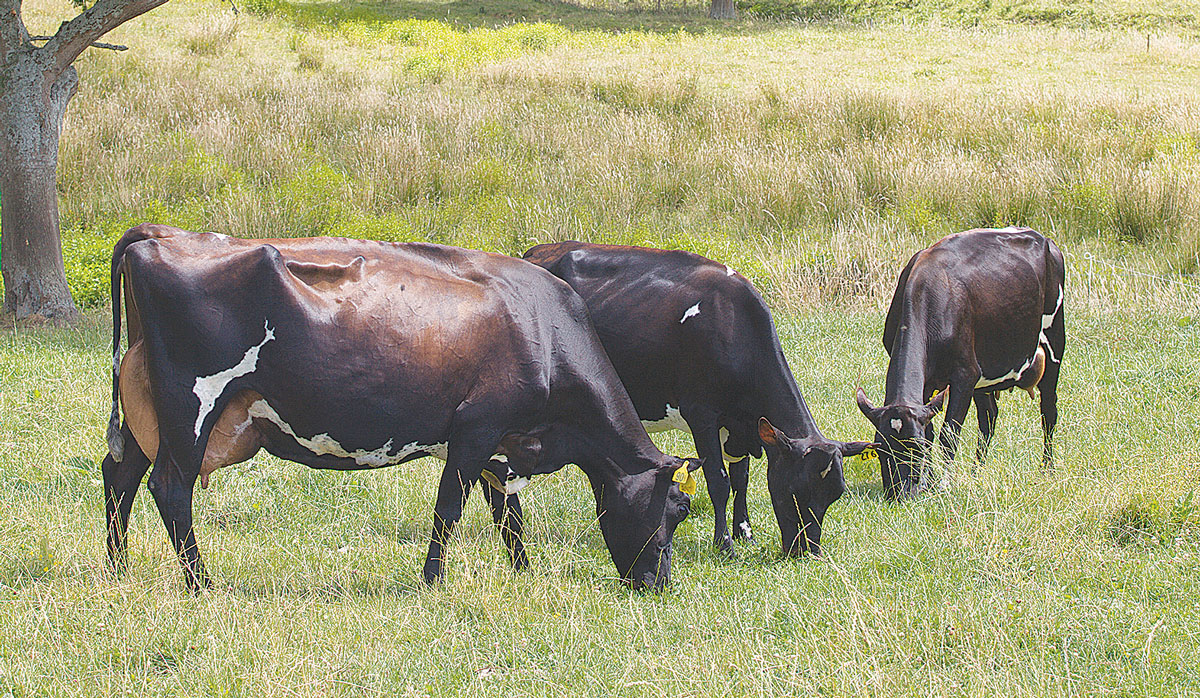LIC lifts half-year revenue on strong demand for dairy genetics
Herd improvement company LIC has posted a 5.2% lift in half-year revenue, thanks to increasing demand for genetics.
When something looks insurmountable, you need to break it down into manageable pieces for the outcome to be achieved.
Unfortunately when it comes to what dairy farmers need to do to comply with environmental requirements, it's not that easy to break down into chunks: Nobody really knows exactly what is required or by when - we just know it's coming.
Dairy farmers are likely to face significant changes in the next few years that are going to impact the way we farm. The unknown can be quite daunting.
He Waka Eke Noa: We know that by 2025 all farmers will be including in their plans commitments to ‘climate change mitigation’ and ‘adaptation in their farm business and environment’ – which essentially means farmers will be calculating net greenhouse gas emissions and be incentivised to act on climate change.
In 2019, the Climate Change Response Amendment Act set into law a domestic 2050 target: Net- zero emissions of all greenhouse gases (other than biogenic methane) by 2050.
There is also an increased awareness of animal welfare issues centred on bobby calves, polled, and heat-resistant genes.
While there is a tremendous amount of research going on to enable farmers to achieve the future goals that focus on environment and animal welfare, there doesn’t appear to be many tools in the toolbox in the here-and-now.
Not only does this have a positive effect on farm profitability, but it contributes greatly to a better environmental footprint.
Breeding from your best animals is easy to do and it’s available in the here-and-now.
 |
|---|
|
A focus on herd improvement through use of premium genetic choices is a key piece in solving the environmental footprint puzzle. |
As reported in LIC’s recent inaugural sustainability report, 30 years of breeding by dairy farmers using LIC genetics has netted a 13% drop in methane emissions and 16% less urinary nitrogen per kilogram of milksolids produced.
High genetic merit animals are more environmentally efficient because they partition a greater proportion of their feed eaten into milksolids and less into waste.
The report also states that for each additional $10BW advantage, an animal typically has 2g less enteric methane and 1.7g less urinary nitrogen per kilogram of milksolid production.
So while the environmental pathway may look daunting or even insurmountable at present, we can all focus on the first step and chunk it down into what we can do now.
For example, with LIC’s Premier Sires Forward Pack teams having a breeding worth advantage over its traditional Daughter Proven contemporaries of between $18BW and $30BW, if you were to elect Forward Pack you’d be committing to making environmental improvement through the genetics that you’d retain in your herd. And more and more farmers are doing just that.
Good for their herd, good for the environment.
Greg Hamill, LIC Genetics Business Manager
Global trade has been thrown into another bout of uncertainty following the overnight ruling by US Supreme Court, striking down President Donald Trump's decision to impose additional tariffs on trading partners.
Controls on the movement of fruit and vegetables in the Auckland suburb of Mt Roskill have been lifted.
Fonterra farmer shareholders and unit holders are in line for another payment in April.
Farmers are being encouraged to take a closer look at the refrigerants running inside their on-farm systems, as international and domestic pressure continues to build on high global warming potential (GWP) 400-series refrigerants.
As expected, Fonterra has lifted its 2025-26 forecast farmgate milk price mid-point to $9.50/kgMS.
Bovonic says a return on investment study has found its automated mastitis detection technology, QuadSense, is delivering financial, labour, and animal-health benefits on New Zealand dairy farms worth an estimated $29,547 per season.
OPINION: Staying with politics, with less than nine months to go before the general elections, there’s confusion in the Labour…
OPINION: Winston Peters' tirade against the free trade deal stitched with India may not be all political posturing by the…